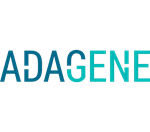- No dose-limiting toxicities observed when ADG126 combined up to 10 mg/kg with repeat cycles, highlighting compelling safety profile with SAFEbody precision masking technology -
- Partial responses confirmed in multiple tumor types and continuous tumor shrinkage in cold tumors (e.g., MSS CRC) and anti-PD-1-resistant patients -
- Dose expansion in combination with anti-PD-1 therapy ongoing at different dosing regimens -
The results (as of
Key findings include:
- Compelling Safety Profile in Combination with Anti-PD-1: ADG126 has been administered at escalating doses up to 10 mg/kg every three weeks in combination with a fixed dose of anti-PD-1 therapy (toripalimab = 240 mg), including repeat dosing cycles. The combination was well tolerated, with no dose-limiting toxicities observed, or maximum tolerated dose yet reached. As of
January 6, 2023 , an additional 10 patients are being evaluated with the combination of ADG126 and pembrolizumab in a separate clinical trial.
- Dose Optimization following FDA Project Optimus1 Initiative: Following completion of the dose escalation cohorts, two separate doses of ADG126 (6 mg/kg and 10 mg/kg evaluated every three or six weeks) are proceeding in expansion cohorts to address different tumor types and follow the goal of the Food and Drug Administration’s ‘Project Optimus’ initiative to reform the dose optimization and dose selection paradigm in oncology drug development.
- Confirmed Clinical Responses & Antitumor Activity:
Adagene also confirmed several partial responses were observed in multiple tumor types during combination dose escalation. Furthermore, continuous tumor shrinkage has been observed in cold tumors (e.g., MSS CRC) and immune-oncology-resistant patients with difficult-to-treat tumor types, consistent with the depletion of T regulatory cells (Treg) by ADG126 and its parental antibody, ADG116, as well as other next-generation anti-CTLA-4 therapies with strong Treg depletion.
“Based on these emerging data, the safety and efficacy profile of this next generation anti-CTLA-4 inhibitor appears to be clearly different,” said
SAFEbody technology is designed to address safety and tolerability challenges of many antibody therapeutics by minimizing on-target off-tumor toxicity in healthy tissues. ADG126 SAFEbody applies this precision-masking technology to the parental anti-CTLA-4 antibody, ADG116, for conditional activation in the tumor microenvironment (TME) to expand the therapeutic index by addressing dose dependent toxicity issues that severely limit the dosage and dosing cycles for effective anti-CTLA-4 therapies.
Binding to the same distinct and highly conserved epitope as ADG116, the masked ADG126 is designed to provide enhanced safety and efficacy profiles due to the combination of the potent Treg depletion in the TME and partial ligand blocking by the activated ADG126, which is accumulated steadily for the prolonged tumor killing effect.
“The emerging data from our combination trials for ADG126 SAFEbody meet our target product profile in clinic and highlight the massive potential of a best-in-class anti-CTLA-4 therapy,” said
Reference
1 The goal of Project Optimus is to educate, innovate, and collaborate with companies, academia, professional societies, international regulatory authorities, and patients to move forward with a dose-finding and dose optimization paradigm across oncology that emphasizes selection of a dose or doses that maximizes not only the efficacy of a drug but the safety and tolerability as well.
About
For more information, please visit: https://investor.adagene.com.
SAFEbody® is a registered trademark in
Safe Harbor Statement
This press release contains forward-looking statements, including statements regarding certain clinical results of ADG126, the potential implications of clinical data for patients, and Adagene’s advancement of, and anticipated preclinical activities, clinical development, regulatory milestones, and commercialization of its product candidates. Actual results may differ materially from those indicated in the forward-looking statements as a result of various important factors, including but not limited to Adagene’s ability to demonstrate the safety and efficacy of its drug candidates; the clinical results for its drug candidates, which may not support further development or regulatory approval; the content and timing of decisions made by the relevant regulatory authorities regarding regulatory approval of Adagene’s drug candidates; Adagene’s ability to achieve commercial success for its drug candidates, if approved; Adagene’s ability to obtain and maintain protection of intellectual property for its technology and drugs; Adagene’s reliance on third parties to conduct drug development, manufacturing and other services; Adagene’s limited operating history and Adagene’s ability to obtain additional funding for operations and to complete the development and commercialization of its drug candidates; Adagene’s ability to enter into additional collaboration agreements beyond its existing strategic partnerships or collaborations, and the impact of the COVID-19 pandemic on Adagene’s clinical development, commercial and other operations, as well as those risks more fully discussed in the “Risk Factors” section in Adagene’s filings with the

Contact:Ami Knoefler Adagene 650-739-9952 ir@adagene.com
Source: Adagene Inc.

